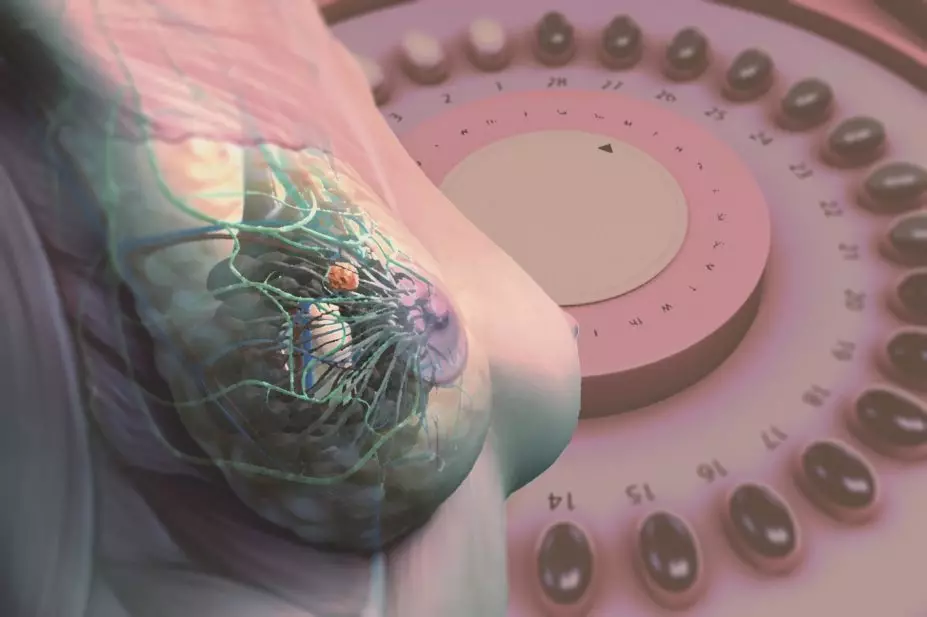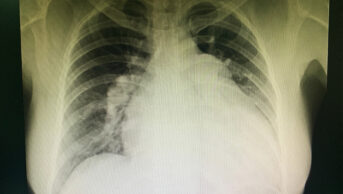
Shutterstock.com
Worsening migraines in users of hormone replacement therapy (HRT) are associated with an increased risk of ischaemic stroke, according to a new study[1]
.
Researchers led by Haseeb Rahman, a neurology resident at the Houston Methodist Hospital in Texas, looked at data from 82,208 women (aged 50–79 years) who were enrolled in the Women’s Health Initiative Study, which was undertaken by the US National Institutes of Health in the early 1990s.
All participants included in the national study suffered from migraines; 45.8% (n=37,680) were users of HRT and 54.2% (n=44,528) were either non-users or past-users of HRT.
The researchers, who presented their findings at the American Stroke Association’s International Stroke Conference 2016 in Los Angeles on 17 February 2016, found that in women taking HRT, an increased severity of migraine symptoms increased the likelihood of ischaemic stroke by 30%, compared with the women who had never used HRT, or used HRT only in the past. They also observed that, compared with non-users or past-users of HRT, women taking HRT had an increased risk of worsening migraines.
“To our knowledge, this particular correlation has not previously been studied,” says Rahman, adding that there may be a “potential additive effect of HRT and worsening migraines on increasing the risk of ischemic strokes”.
The researchers note that the rate of increase in the severity of migraines was higher (20.6%) among current users of HRT, compared with those who never used the therapy (17.3%) and those who used it only in past (18.7%)(P<0.0001). The odds ratio of ischaemic stroke for non-users or past-users of HRT compared with current users whose migraine severity remained unchanged or decreased was 0.91 (confidence interval [CI] 0.88–0.94) versus 1.1 (CI 1.1–1.2); P<0.0001. However, the odds ratio of ischaemic stroke for non-users or past users of HRT compared with current HRT users whose migraine severity increased was 0.81 (CI 0.74–0.88) versus 1.3 (CI 1.1–1.5); P<0.0001.

Source: American Heart Association
Haseeb Rahman, neurology resident at the Houston Methodist Hospital in Texas, says there may be a potential additive effect of hormone replacement therapy and worsening migraines on increasing the risk of ischaemic strokes
“Patients that are current users of HRT that have an increase in severity of one grade or more of migraines are shown to have an increased risk of ischaemic strokes,” conclude the researchers.
According to Rahman, there are uncertainties around the value of migraines and HRT use as risk factors for ischaemic stroke. “Due to these ‘grey areas’ in our understanding, it is challenging to point out the exact mechanisms through which worsening migraines could increase ischaemic stroke risk,” he says.
Commenting on the study, Swapan Jana, a clinical tutor at the department of pharmacology at Midnapore Medical College Hospital in West Bengal, India, says it is important to identify whether women who use HRT also have migraines.
“Ischaemic stroke is the most common type of stroke that occurs due to obstruction in a blood vessel (maybe by a blood clot) that supplies blood to the brain,” says Jana. “To prevent this stroke, as the current study indicates, proper monitoring of post-menopausal women with migraines — who are also using HRT — should be carried out.”
References
[1] Rahman HA, Malik A, Saeed O et al. Worsening migraines in current hormone replacement therapy users predicts higher risk of stroke. 17 Feb 2016, American Stroke Association’s International Stroke Conference 2016, Los Angeles.


